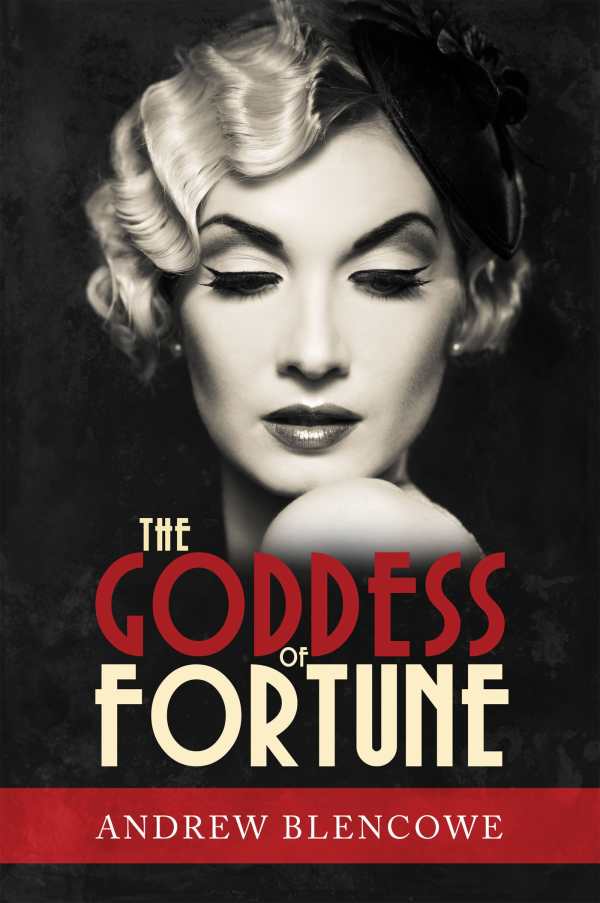The Goddess Of Fortune
This alternate history of WWII is also a reflection on modern-day economic and social missteps.
There’s no better villain than Hitler around whom to spin an alternate history novel, but Andrew Blencowe plays a trick on mad Adolf even before Imperial Japan attacks Pearl Harbor. With Hitler out of the picture and Japan riding high, the author has an interesting framework for The Goddess of Fortune, a tale driven by dark and amoral manipulations at the centers of power.
To fabricate a believable alternate history, Blencowe first has the evacuation of Dunkirk fail. Great Britain is outside looking in, left vulnerable, helpless, and isolated. The French, conquered, lurk in the background. Italy and Mussolini are inept comedians. But as rationalists assume more power in Germany, FDR and his Brain Trust turn west and negotiate with Imperial Japan after Pearl Harbor. The motivation? To divide and exploit the resources of the Pacific Rim by implementing FDR’s semi-socialist economic plan, one rejected by the US Supreme Court as unconstitutional.
Covering the late 1930s to early 1942, the plot is a series of connected anecdotes set in the seats of power, mostly Washington and Germany, with Machiavellian machinations as a catalyst for a new world order. Blencowe renders these conferences and conversations sufficiently to sustain reader interest, but most action scenes—ships sinking, oil reserves sabotaged—are related in exposition-like after-action reports. The author does well in this reimagining of strategic and duplicitous manipulations at the seats of power, but cynicism prevails.
Real characters appear from history books—the German military leader, Jodl, gets good press, but Hitler’s architect, Albert Speer, is bloodlessly amoral. Even history’s supposed good guys—FDR, War Department chief Henry Stimson, Admiral Ernest King—are dispassionately conniving. From the Oval Office to Hitler’s mountain retreat, no one escapes with their reputation entirely intact. Winston Churchill’s a “pompous drunk.” FDR is “dangerously impulsive and too much a gambler.” And many in Hitler’s inner circle dismiss the dictator as “the strutting, chaotic and flatulent Austrian with chronically bad stomach, rotting teeth and blind hatreds.”
In Blencowe’s alternate world, those with power to scheme are totally amoral, all real politik, without thought for greater humanity. Neither the implications nor facts of the Holocaust play a part in the narrative. There’s sex, much of it R-rated, with characters lusting across the page, but conversely, some of the other bedroom action is dispassionate and manipulative, especially on the part of a beautiful German functionary who’s both a “honey trap” and a nymphomaniac. When folks are clothed, Blencowe shows solid ability to write conversational interactions in a believable fashion, especially in the halls of power.
Thematically, Blencowe’s novel applies utilitarian philosophy to test democratic republicanism as a worthy form of governing, thereby creating an imaginative alternate history as a reflection on modern-day economic and social missteps, something sure to intrigue thoughtful readers.
Reviewed by
Gary Presley
Disclosure: This article is not an endorsement, but a review. The publisher of this book provided free copies of the book and paid a small fee to have their book reviewed by a professional reviewer. Foreword Reviews and Clarion Reviews make no guarantee that the publisher will receive a positive review. Foreword Magazine, Inc. is disclosing this in accordance with the Federal Trade Commission’s 16 CFR, Part 255.

